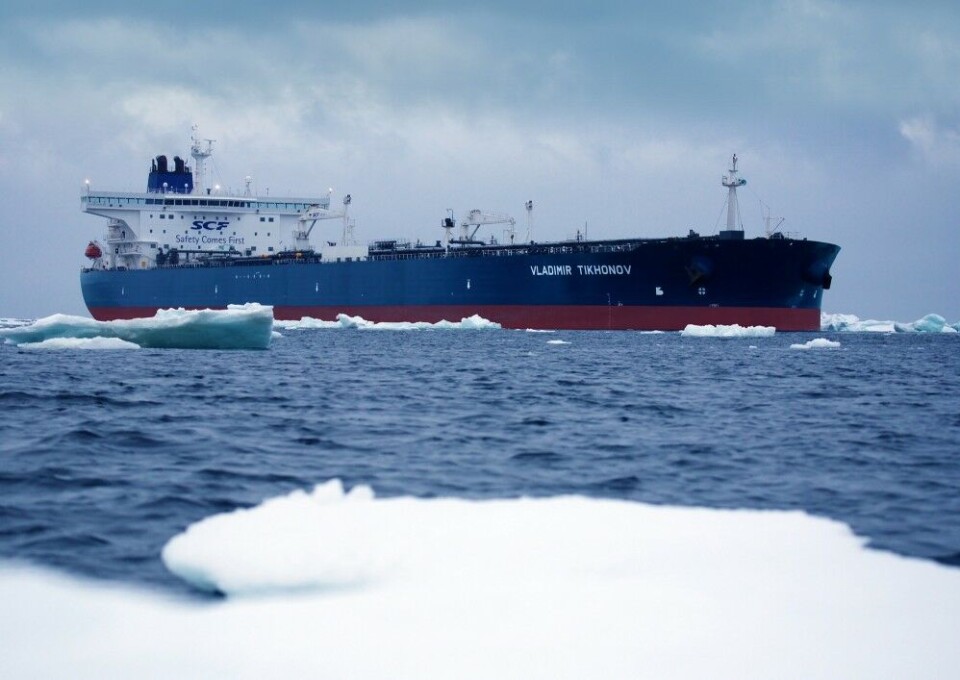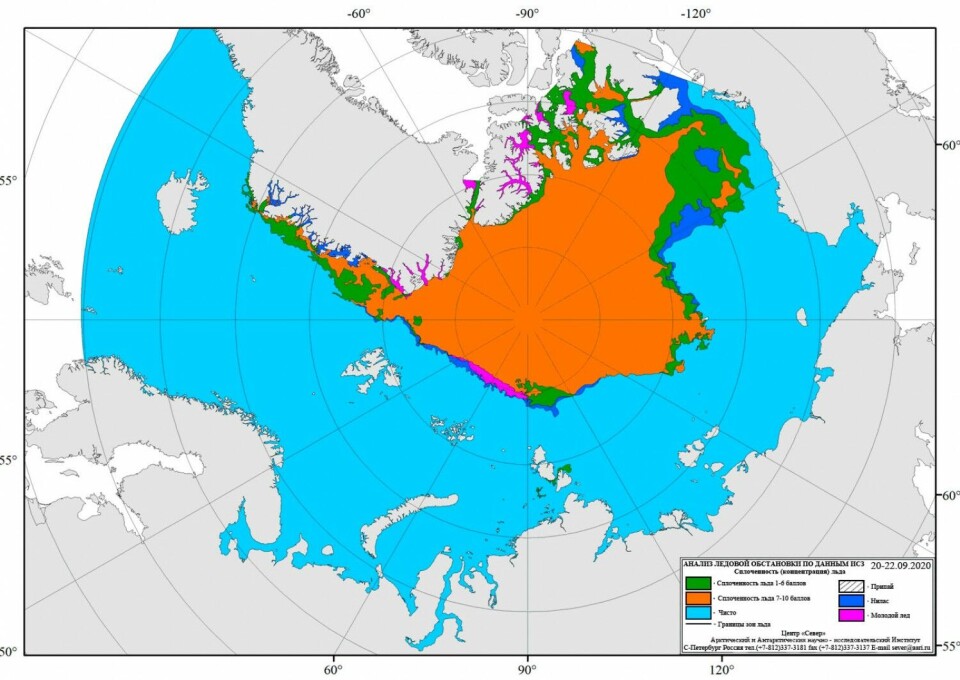
As sea-ice retreats to record low, Arctic shipping reaches new high
Almost 23 million tons of cargo was shipped on the Northern Sea Route in the first 9 months of the year.
Never before have this big volumes been transported along the Russian Arctic shipping route. According to the Russian Federal Agency for Maritime and River Transport, a total of 22,98 million tons was shipped on the route in the period January-September 2020. That is 1,5 percent more than in the same period in 2019.
Transit shipments accounted for 580,000 tons, the Agency informs.
Shipping on the the Northern Sea Route (NSR) have increased explosively over the past years. In 2017, a total of 10,7 million tons were transported on the route. In 2018, the volume increased to 20,18 million tons and in 2019 to 31,5 million.
The total volume for 2020 is expected to exceed 32 million.
It is Rosatom, the Russian state nuclear energy company, that manages the development of the NSR. Leader of Rosatom’s NSR Directorate Vyacheslav Ruksha recently made clear that Vladimir Putin’s ambitious 80 million tons target will not be met by 2024.
But it will be met in 2025, and by 2030 shipments will amount to 110 million tons, Rukhsa underlined.
The growth in Arctic shipments comes as sea-ice in the area is shrinking at record-pace following unprecedented warming.

According to the National Snow and Ice Data Center, the extension of the Arctic ice sheet in 2020 reached the second-lowest on record.
The ice edge north of Svalbard and Russia’s Arctic archipelagos in several areas retreated to 85 degrees north.
The whole Northern Sea Route is now ice-free. There are only certain areas with drifting icebergs around the Vilkitsky Strait and by Cape Zhelaniya in Novaya Zemlya, as well as ice hammocks in parts of the East Siberian Sea, according to the Federal Agency for Maritime and River Transport.
















